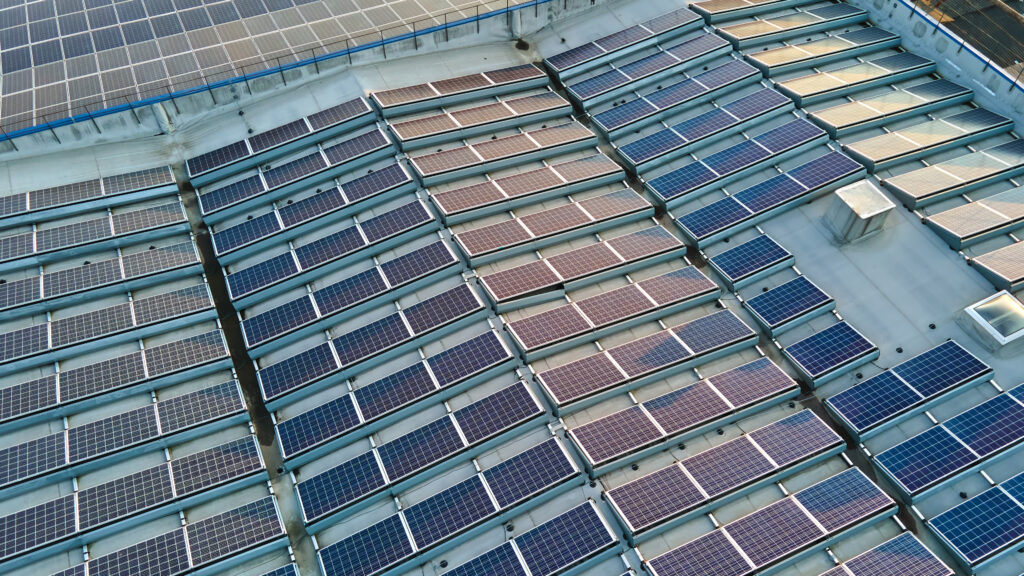By Carlos Roa, VoLo Foundation
Whenever it comes to speaking about climate change and economic development, a persistent myth arises: the notion that lowering greenhouse gas emissions and fostering economic growth are at odds. This binary thinking is not only outdated but misleading.
Reducing emissions and stimulating economic growth are not mutually exclusive objectives; In fact, they are complementary, driving innovation, creating jobs and ensuring long-term economic resilience.
Regarding the topic, Katharine Hayhoe, climate scientist and chief scientist at The Nature Conservancy, states, “Despite what you might think from listening to political advertising and more than a few media reports, U.S. carbon emissions dropped last year at the same time that the economy grew.”
Additionally, as a distinguished professor at Texas Tech University and author of the book “Saving Us,” Katharine adds, “Yes, that’s right! Last year, the U.S. economy grew by 2.5% while the total carbon emissions decreased by 2-3%, according to the U.S. Energy Information Administration. US emissions are now down 20% from the all-time high in 2007, according to the EIA.”
Innovation is a catalyst for economic growth

The push to lower greenhouse gas emissions is a powerful catalyst for innovation. Investment in green technologies — ranging from renewable energy sources like wind and solar to advancements in energy efficiency and electric vehicles — spurs economic activity and opens new markets.
For instance, the renewable energy sector has been one of the fastest-growing job creators worldwide. According to the International Renewable Energy Agency (IRENA), the renewable energy sector employed over 13.7 million people globally in 2022, with numbers steadily increasing.
Moreover, the transition to a low-carbon economy fosters technological advancements that benefit diverse industries. Energy-efficient technologies reduce operational costs for businesses, making them more competitive. Innovations in sustainable agriculture can enhance food security and boost rural economies. By investing in green technology, we lay the foundation for robust economic growth rooted in sustainability.
Economic resilience through sustainability
Long-term economic resilience hinges on the health of our environment. Climate change poses significant risks to economic stability, threatening industries from agriculture to insurance. Extreme weather events, rising sea levels and shifting weather patterns can disrupt supply chains, damage infrastructure and lead to significant financial losses. By proactively reducing greenhouse gas emissions, we mitigate these risks and invest to protect our economic future.
Countries taking the lead in adopting sustainable practices are better positioned to navigate the economic uncertainties posed by climate change. They are also more likely to attract investment, as sustainability increasingly becomes a critical criterion for investors. Companies and nations alike prioritizing sustainability are viewed as forward-thinking and responsible, enhancing their appeal in the global marketplace.
Policy synergy: aligning economic and environmental goals
Effective policies can bridge the gap between economic growth and environmental stewardship. Carbon pricing, for example, is a powerful tool that incentivizes businesses to reduce emissions while generating revenue for reinvestment in green technologies and infrastructure. Similarly, subsidies for renewable energy projects and tax incentives for energy-efficient buildings can drive economic activity while promoting sustainability.
The European Union’s Green Deal is a prime example of policy synergy. Aimed at making Europe the first climate-neutral continent by 2050, the Green Deal includes substantial investments in renewable energy, sustainable transport and circular economy initiatives. This comprehensive approach not only addresses climate change but also stimulates economic growth and job creation across member states.
Global competitiveness and leadership

Embracing the transition to a low-carbon economy enhances global competitiveness. As the world increasingly shifts toward sustainability, countries and companies leading in reducing greenhouse gas emissions are setting the standards for future economic models. This leadership can open export opportunities for green technologies and services, positioning these pioneers at the forefront of the global economy.
The false dichotomy between reducing greenhouse gas emissions and achieving economic growth must be left behind. The path to a sustainable future is also the path to economic prosperity. By embracing forward-thinking policies, we can create a resilient economy simultaneously thriving in harmony with the environment.
It is time to recognize that the health of our planet and the health of our economy are deeply intertwined, and by nurturing both, we secure a steady future for generations to come.
Carlos Roa is senior press and PR director for VoLo Foundation. This piece was originally published at https://volofoundation.org/news/climate-action-and-economic-growth-go-hand-in-hand/.
Sign up for The Invading Sea newsletter by visiting here. If you are interested in submitting an opinion piece to The Invading Sea, email Editor Nathan Crabbe at ncrabbe@fau.edu.



